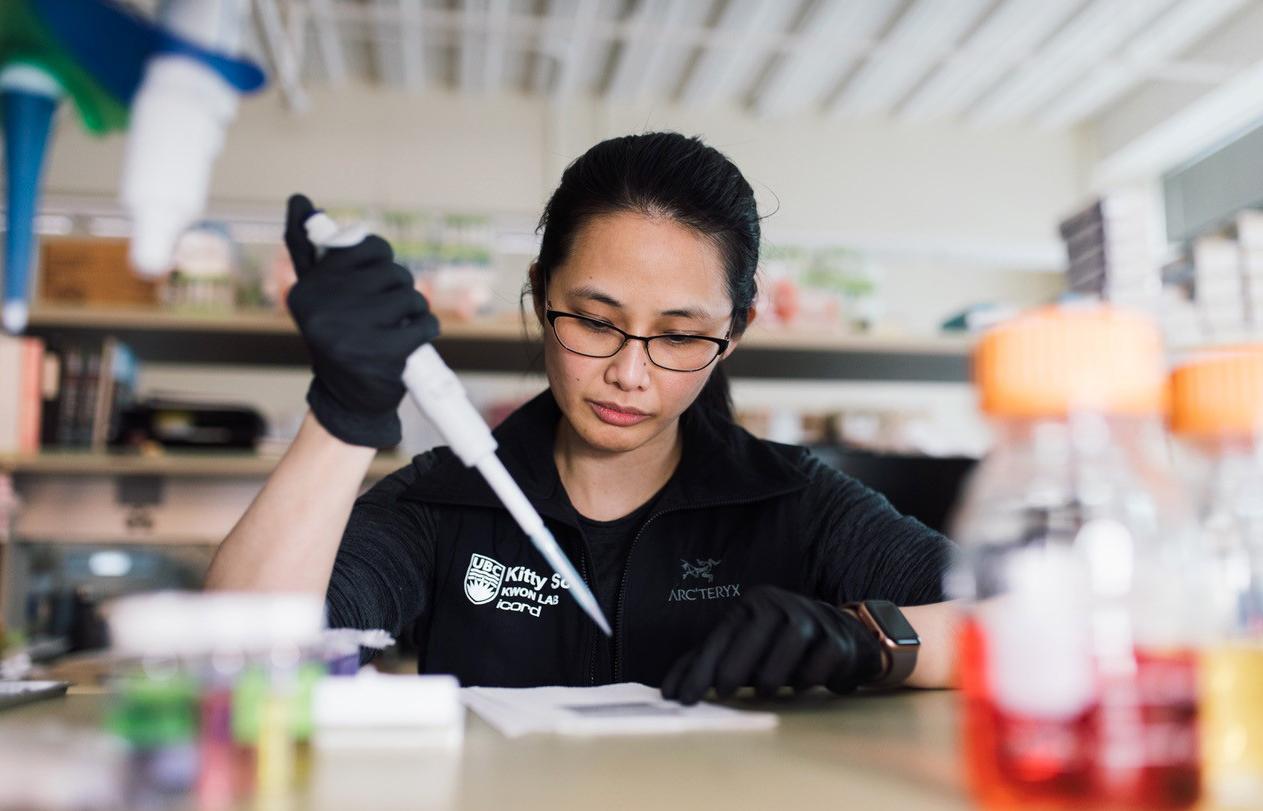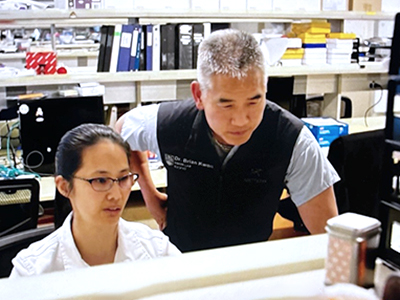
Congratulations to this year’s recipient of the Research Excellence Staff Award!
Vancouver Coastal Health Research Institute (VCHRI) is proud to recognize the outstanding contributions of long-term research staff with the 2024 Research Excellence Staff Award (RESA). This competition acknowledges staff members with 10 or more years of service who have demonstrated research excellence through mentorship, building a culture of research and upholding the VCHRI values of integrity, accountability, collaboration, equity and community- and patient-focus. This year’s recipient will receive $15,000 in lab funding, as well as a personal honorarium for their dedicated work.
Leading with integrity, dedication and kindness

Position: Lab operations and project manager, ICORD
Principal investigator: Dr. Brian Kwon
Since joining the Kwon Lab at the International Collaboration on Repair Discoveries (ICORD) in 2013 as a lab technician, Kitty So has become a trusted leader within the lab, helping it grow from a team of five to a team of over 25 full-time staff and trainees. As the current lab operations and project manager, Kitty oversees research, finance and human resource-related needs for her team. Her ability to remain calm in a demanding and fast-paced environment is one of the ways she sets a good example to junior staff and contributes to a positive and collaborative workplace culture.

On top of always going above and beyond the call of duty for the Kwon Lab, Kitty has been instrumental in coordinating and leading experiments for the lab’s $48 million Defense Advanced Research Projects Agency (DARPA) program. She led many aspects of the technical development, surgical implantation methods, data collection and analytics for the lab’s novel blood pressure monitoring device, in addition to supporting the management of the complex budget and human resources needs for the project.
Drawing from research experience spanning 20 years across multiple labs, Kitty supported the development of a new large animal surgical suite within the Centre for Comparative Medicine (CCM) at the University of British Columbia. She designed the layout of the surgical suite’s new operating room, behavioural suite, prep-room, recovery room and wetlab space. Her work on this $2 million project has led to a state-of-the-art facility for researchers to expand their work.
Kitty’s efforts as lab manager have led the Kwon Lab team to success in many research endeavours. She inspires those around her to fully commit to improving the lives of people living with a spinal cord injury.
Q&A with Kitty
Q: What sparked your interest in pursuing a career in health research?
A: I immersed myself in basic science research in the first decade of my professional journey. While this helped establish a robust foundation for conducting good scientific inquiries, the outcomes were somewhat distant from real world application. I wanted to be involved with research that could more directly improve human health and enhance patient recovery. Thankfully, I found a fulfilling place in the Kwon Lab. Working alongside dedicated colleagues, collaborating to address research questions relevant to spinal cord injury (SCI) patients at the bedside deepened my passion for health research.
Q: What aspects of working within a research lab do you find most rewarding?
A: I thoroughly enjoy troubleshooting and finding creative solutions to seemingly impossible challenges. Witnessing hair-brained ideas materialize into experimental success is very satisfying!
Q: What is your proudest accomplishment during your time at VCHRI?
A: Overall, contributing to the advancement of SCI research is a source of pride. Specifically, spearheading the establishment of a new large animal surgical suite and integrating high-frequency ultrasound imaging into our experimental protocols have been pivotal. These initiatives have propelled our preclinical SCI projects forward, and I am grateful to have played a role in these advancements.
Q: What research would you like to undertake in the future?
A: If the opportunity knocks, I find it intriguing to engage in the clinical aspects of SCI research. This would provide insights into how devices or therapies developed in the preclinical models translate to the clinical setting.


